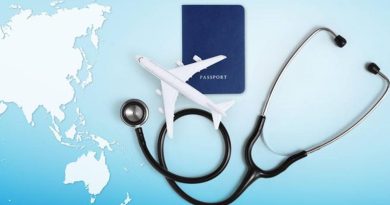6 Tips On How To Overcome Intermittent Fasting Fatigue
Tips | Drink water | Review your diet | Eat more | Eat less | Get enough sleep | Drink a cup of coffee
Why am I so tired while intermittent fasting? While you might enjoy various intermittent fasting benefits like weight loss, improved hormonal function and better sleep, it’s likely you will also encounter a few fasting side effects. While it is inevitable you will feel hungry at some point while fasting, possibly the second most common side effect could be intermittent fasting fatigue.
Here are some Tips to overcome Fasting Fatigue – we will cover in Further detail below……
6 Tips to Overcome Fasting Fatigue
- Drink Water
- Review Your Diet
- Eat More
- Eat Less (we will explain)
- Get Enough Sleep
- Drink Coffee or Tea
When intermittent fasting fatigue hits, it might be tempting to just throw in the towel and reach for your favorite snack to soothe the body and mind. These low energy levels can be tough!
Not so fast (no pun intended)!

Why am I fatigued during Fasting?
You just started fasting and physical activity feels like a chore? Don’t worry we can help! This may happen early in your fasting journey. But with the right system in place that will fade fast, and you will experience heighted energy levels before you know it.
Intermittent fasting involves a set eating window, followed by fasting periods. This form of calorie restriction limits your food intake based on the fasting/eating window you choose.
Health benefits of Intermittent fasting include body weight loss, improved sleep quality, increased energy in the long term, anti-aging benefits, cellular recovery, gut GI tract benefits, and much more!
6 Tips To Overcome Intermittent Fasting Fatigue
1. Drink water
While it might be tempting to just grab a cup of strong coffee to wake up your body and mind, it will just treat the symptom, not the cause of your fasting fatigue. Studies show that even mild dehydration can make you feel tired regardless of whether you’re actually rested or not.
When you’re dehydrated your blood pressure drops, leading to reduced blood flow to your brain. You also experience a decrease in blood volume which makes your heart work harder to pump all the nutrients, oxygen, and fluid to different cells. All of that causes fatigue and sleepiness. Electrolyte imbalances can also cause issues.
To top it up, mild dehydration symptoms often resemble symptoms of hunger. You might experience the typical hunger cues like growling or empty-feeling stomach. Think twice – it might not be a snack that you need but just a glass of water.
We could talk over and over about the benefits of drinking water. Especially during intermittent fasting when your water intake is reduced because of fewer meals consumed. One thing is clear – stay hydrated and you will avoid most intermittent fasting side effects and feel more healthy and energized.
If you’re not a fan of plain water try other intermittent fasting friendly drinks like tea, fruit-infused water or add a tablespoon of apple cider vinegar to your glass of water.

2. Review your diet
Often fatigue is not directly caused by intermittent fasting. If your diet does not contain all the essential micronutrients and minerals you might end up having nutritional deficiency that causes fatigue among other side effects.
Intermittent fasting, particularly, more restrictive fasting schedules like One Meal A Day can add an extra layer of difficulty to consume all the necessary nutrients.
The most common mistakes with a poor diet are too much processed food and sugar and not enough vegetables, fruits and other whole foods. Try consulting with a nutritionist to get personalized guidance on how to improve your diet or try some of the already made nutritionist-approved meal plans for intermittent fasting. Poor diet will destroy your energy production. Lean protein and healthy fats should be a large part of your food consumption.
3. Eat more.
Following the previous tip about reviewing your diet, you might end up concluding that you should eat more healthy meals to provide all the essential nutrients. You may not be getting the calories you need to keep your energy up. This is particularly the case if you have a more active lifestyle that includes working out or having a more mobile working life. Getting enough food is quite important!
Even if your goal for intermittent fasting is to lose weight you shouldn’t do it at the expense of your health!
If you think not eating enough is causing your intermittent fasting fatigue, try reducing your fasting window to fit in a few nutritious snacks or a small healthy meal. You might also take a look at some intermittent fasting supplements to boost your vitamin and mineral intake. If you start experiencing weight gain, simply cut back on the calories.

4. Eat less.
Wait…should you eat more or less then?
It depends.
After your fasting window, you might feel like going on a binge eating spree. Overeating, especially for beginner intermittent fasters is a very common intermittent fasting mistake.
However, doing that will not only jeopardize your weight loss goals but is also likely to make you feel sluggish or fatigued after your big meal.
A bit of sleepiness after a meal is completely normal, particularly if you eat a big meal or food high in carbs. It makes your blood sugar increase very steeply after eating and plummets afterward which leads to a so-called blood sugar “crash”.
To minimize the after-meal fatigue, try breaking your fast with a smaller meal, especially one with fewer carbs. You might want to try yogurt, bone broth or leafy green vegetable salad.
5. Get enough sleep
Seems quite simple – if you’re feeling tired it’s likely you’re just not getting enough sleep. CDC suggests that adults need at least 7 hours of sleep per night for the best health and wellbeing. The reality is that more than a third of American adults are not getting enough sleep on a regular basis.
When it comes to intermittent fasting fatigue and sleep, some people claim fasting has improved their sleeping habits. Others struggle to sleep when hungry. If you’re one of the people that can’t fall asleep with an empty stomach try shifting around your fasting schedule or brew a cup of fasting tea before sleep to make you feel fuller. When drinking a fasting tea be sure there is no caffeine if drinking before bed.

6. Drink a cup of coffee
Sometimes you just need to be energized and focused and need a quick fix. When all else fails coffee can be there to rescue you. Luckily black coffee is one of the few drinks you can enjoy during your fast. No sugar or cream though.
Try to stick to the suggested 2 – 3 cups of coffee (400mg of caffeine) a day and stay away from coffee in the evenings. You might not want it to interfere with your good night’s sleep making you more tired the next day.
For a more calm and focused energy, trying L-Theanine with your coffee or tea if caffeinated, this will help balance the caffeine jitters you may get and avoid that intermittent fasting fatigue. Keep in mind coffee may cause sleep disturbances if you drink it after 12pm, as the life in your system can be quite long with caffeine. This excess energy may keep you up at night.
Conclusion about Intermittent Fasting Fatigue
There are many ways to prevent and cure fasting fatigue and low energy. Be sure to take it slowly when you begin intermittent fasting. Let your body adjust slowly over time to make sure you don’t go too hard and burn yourself out. Intermittent Fasting fatigue does not have to be the norm for you, give it time, and you will reap the benefits of increased energy, better health, weight loss, and you will feel great in no time!
Create an intermittent fasting plan that meets your time window that works best for your lifestyle. Whether you enjoy the ketogenic diet, vegan whatever suits your desires. Or whether you prefer alternate-day fasting, 16/8 fasting, 14/10 fasting, circadian rhythm fasting, you choose your number of days as well that you choose to fast per week, its very flexible!
It is always a good idea to consult with your doctor before starting any new diet routine. Be sure you do not have (risk factors) an eating disorder, heart disease, cardiovascular disease, immune system issues, chronic fatigue syndrome, etc. Pregnant women should also speak with your medical health professional, they will give you the best guidance possible.
Want help losing weight with our Programs? See our Fasting Challenge Pages HERE.
Also need help fasting? Check out the Best Intermittent Fasting Mobile Apps we recommend to help you on your journey.



